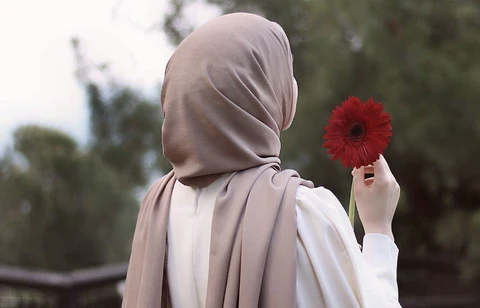Women’s Rights in Islam

The discussion of Women’s Rights in Islam centers on a comprehensive and integrated system that established these rights many centuries before the advent of many modern legislations, thereby honoring and elevating her status.
These rights can be summarized from religious, social, and financial perspectives as follows:
1. Human Rights and Equal Dignity
The fundamental principle of Islam is that women and men are equal in their intrinsic human dignity and accountability for their actions.
- Equality in Origin: The Quran asserts that humanity was created from a single soul, and that superiority is based not on gender but on Piety (Taqwa)—one’s consciousness of God and righteous deeds.
- Equality in Reward and Punishment: Women are equal to men in receiving reward for good deeds and punishment for misdeeds; the religious discourse addresses both genders equally.
- The Right to Life: Islam strictly forbade and condemned the practice of female infanticide (Wād) that was prevalent in the pre-Islamic era, affirming the girl’s right to life and care.
2. Social and Educational Rights
Islam established broad rights for women to be respected and effective partners in the family and society:
- The Right to Education and Seeking Knowledge: Seeking knowledge is obligatory for every Muslim male and female, and Islam did not differentiate between them in this right. Throughout Islamic history, there were female scholars and jurists who played a significant role in transmitting knowledge.
- The Right to Choose a Spouse: A woman has the absolute right to accept or reject a suitor, and the marriage contract is legally invalid without her consent and approval.
- Her Rights as a Wife:
- The Dowry (Mahr): This is a mandatory right belonging solely to her, not to her father or guardian.
- Financial Support (Nafaqah) and Housing: The husband is legally obligated to provide financial maintenance and suitable housing for his wife, even if the wife is wealthy.
- Kind Treatment: The Prophet Muhammad (peace be upon him) strongly urged kind treatment toward women, emphasizing the importance of good conduct in their relationship.
- The Right to Seek Divorce (Khul’): A woman has the right to initiate separation (Khul’) if the continuation of the marriage becomes untenable.
- Her Rights as a Mother: Islam immensely honored the mother, making devotion and good treatment toward her a duty prioritized even over the father, stating that Paradise lies under the mother’s feet.
3. Financial and Economic Rights
Islam granted women a complete and independent financial status that they did not enjoy in many ancient civilizations:
- Independent Financial Liability: A woman has the full right to own, sell, buy, manage her wealth, and invest it without needing permission from her husband or father. Her wealth is entirely separate from her husband’s.
- The Right to Work: A woman has the right to work and earn a living according to Islamic guidelines that preserve her dignity and feminine nature. No one has the right to take any part of her earnings without her consent.
- The Right to Inheritance: Contrary to the practices of the pre-Islamic era that deprived women of inheritance, Islam mandated a specific and clear share for women in inheritance, whether she is a daughter, sister, wife, or mother.
- Note on Inheritance: In the specific cases where a woman inherits half the share of a man (such as a brother and a sister), this is part of the integrated financial system. The man is financially obligated to provide for his wife and children, whereas the woman’s share remains her sole property and she is not obligated to spend it on anyone. In other scenarios, a woman may inherit the same share as the man, and sometimes even more.
Islam established for women the principle of justice and honor, considering her an essential element in the building of the family and society, and granting her full rights in accordance with her nature and composition.
